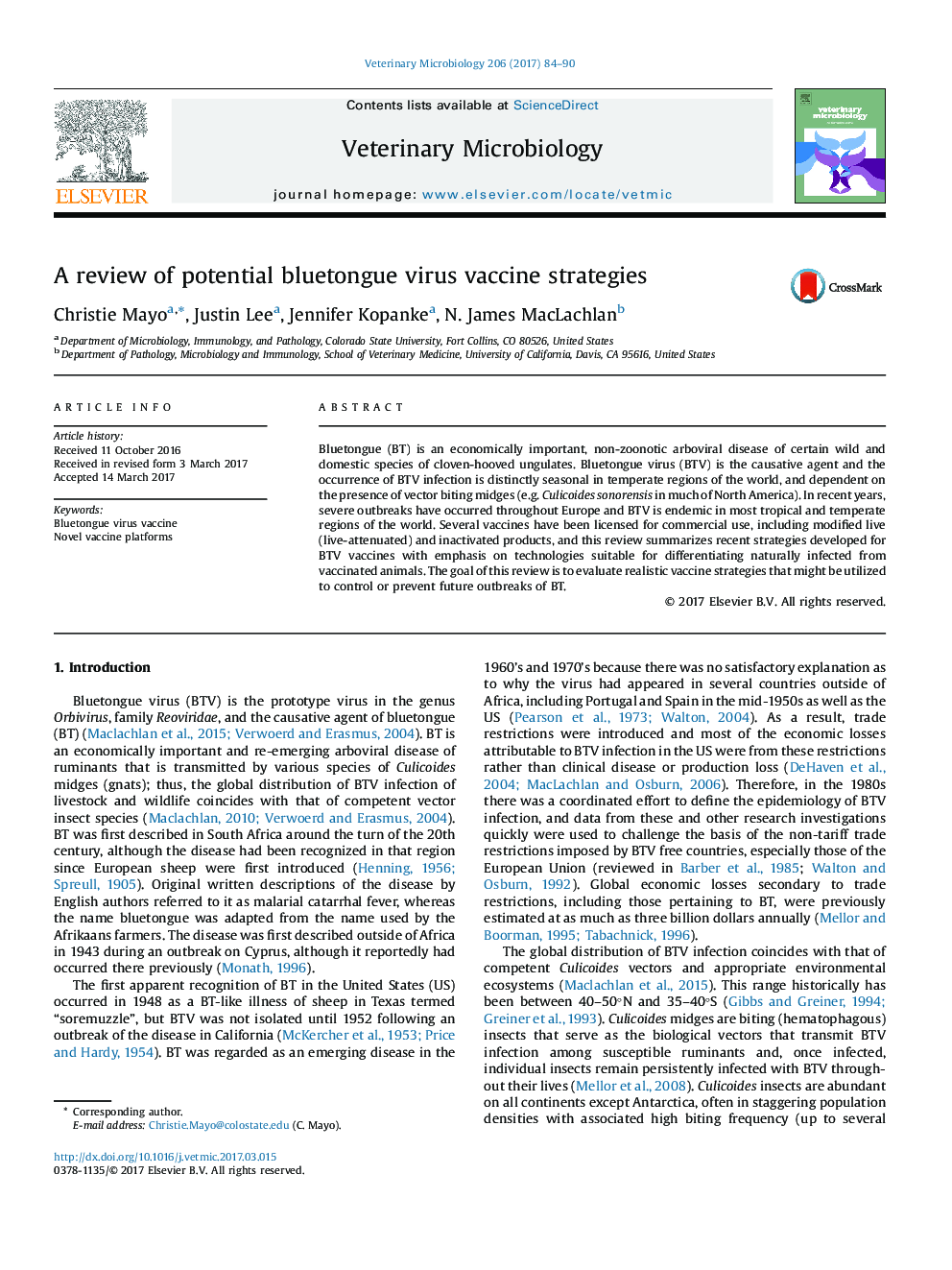| Article ID | Journal | Published Year | Pages | File Type |
|---|---|---|---|---|
| 5545339 | Veterinary Microbiology | 2017 | 7 Pages |
â¢Limited number of vaccines are available internationally for bluetongue virus (BTV) and substantial issues regarding availability of inactivated BTV vaccines.â¢Only inactivated and modified live vaccines are commercially available for vaccination against BTV.â¢Inactivated vaccines provide serotype-specific protection but are reasonably efficacious and effective.â¢Modified live vaccines have safety issues associated with use and can potentially reassort with genes of circulating wild-type virus in the field.â¢Novel strategies are under development but available BTV vaccines lack capability of differentiating infected from vaccinated animals (DIVA).
Bluetongue (BT) is an economically important, non-zoonotic arboviral disease of certain wild and domestic species of cloven-hooved ungulates. Bluetongue virus (BTV) is the causative agent and the occurrence of BTV infection is distinctly seasonal in temperate regions of the world, and dependent on the presence of vector biting midges (e.g. Culicoides sonorensis in much of North America). In recent years, severe outbreaks have occurred throughout Europe and BTV is endemic in most tropical and temperate regions of the world. Several vaccines have been licensed for commercial use, including modified live (live-attenuated) and inactivated products, and this review summarizes recent strategies developed for BTV vaccines with emphasis on technologies suitable for differentiating naturally infected from vaccinated animals. The goal of this review is to evaluate realistic vaccine strategies that might be utilized to control or prevent future outbreaks of BT.
